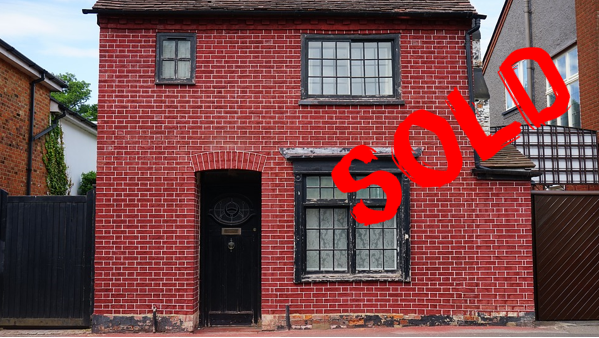
Why is it Important to Get Your Documents in Order for Conveyancing?
Conveyancing is a complex legal process that involves transferring the ownership of a property from the seller to the buyer. To ensure a smooth and hassle-free conveyancing process, it is essential to get your documents in order. The documents required for conveyancing include legal, financial, and administrative paperwork that needs to be organised and presented correctly.
The multi-award winning conveyancing team at Howells Solicitors have prepared this guide for you to gain a better understanding and to prepare when you are in a position to start the legal process of buying or selling a property.
Documents Needed to Buy a House
Once you’ve found your dream home, your residential conveyancing solicitor will ask you to sign a number of forms, as well as providing required information within a timely manner. Your solicitor will request:
Proof of Funds and Mortgage Offer
Before contracts can be exchanged, you will be required to provide a copy of your mortgage offer (if required) and evidence of any other funds that will be used to purchase the property. This will show that you are in the financial position to purchase the property.
If you have already met with a mortgage lender, then it is likely that you’ll have proof of your deposit and three months’ worth of income already.
Proof of Identity and Address
You will also be asked to present two forms of identification which can evidence who you are and where you currently reside. This can be any of the following:
For proof of identity:
- Current Full Signed Passport
- Current EU Photo Driving License
For proof of address:
- Latest Residential Mortgage Statement.
- Latest Council Tax Bill.
- Bank/Building Society statement dated within last 3 months.
- Utility Bill dated within the last 3 months (not a mobile phone bill).
- Current EU Photo Driving License
- Current UK Paper Driving License
Please note: No item can be used for both proof of identity and address, and cannot be used as evidence for more than one person.
Documents for Selling a House
There are considerably more documents required from a seller during the conveyancing process with most of these documents are about the property. The documents needed during the house buying process include:
Proof of Identity
As detailed for the buyer, two forms of identification will be required.
Property Title Deeds
If unregistered, these are paper documents that prove you are the current owner of the property being sold and who previous owners were. You may have these or your solicitor can request official copies from the Land Registry if already electronically registered.
TA10 Fittings and Contents Form
This is a clear and concise document which states what will be included in the sale of the property. Room by room, there will be a breakdown of what fixtures and fittings will remain in the property, as well as any furniture that has been requested as part of the sale. This document will be provided by your solicitor.
TA6 Property Information Form
This form will also be provided by your solicitor and details information about the building and land, including:
- Where boundaries are and who is responsible for the upkeep of dividing fences or walls
- Ongoing disputes or previous complaints
- Notices or proposals for nearby developments
- Modifications to the property, such as extensions or new windows
- Guarantees or warrantees
- Insurance
- Environmental factors, such as flood risks
- Rights and any informal arrangements, such as rights of access or chancel repair fees
- Parking
- Occupiers
- Services and utility connections, such as central heating and electricity
- Transaction information, including any special requirements for moving dates
- Any other charges
Additional Documents Referenced in the Property Information Form
This will include Building Regulations sign off or FENSA certificates.
Energy Performance Certificate (EPC)
A certificate of assessment which details how ecological the property is. For example, energy use and CO2 impact.
Management Information Pack
If the property is leasehold, this pack will usually be obtained from the property managing agent or property management company. Your solicitor will discuss with you the application process.
How to Get Your Documents In Order for Conveyancing?
Getting your documents in order for conveyancing can seem like a daunting task, but it can be made more manageable by following these steps:
Create a Checklist
Make a list of all the documents required for conveyancing and organise them into categories such as legal, financial, and administrative paperwork.
Gather the Documents
Collect all the necessary documents and check them against the checklist. If any documents are missing or need to be updated, take the necessary steps to obtain them.
Organise the Documents
Arrange the documents in a logical order and label them correctly to make them easy to find and reference.
Make Copies
Make several copies of the documents and keep them in a safe place. You may need to provide these copies to your conveyancing solicitor, mortgage lender, or other parties involved in the conveyancing process.
Get Professional Help
Conveyancing is a complex legal process that requires the expertise of a solicitor. A conveyancing solicitor can guide you through the process and ensure that all your documents are in order.
Our Conveyancing Experts Are Here to Help You
Getting your documents in order for conveyancing is essential for a smooth and hassle-free property transaction. By following the steps outlined in this guide, you can organize your documents effectively and ensure that all the necessary paperwork is in place. Remember to seek the help of a conveyancing solicitor if you are unsure about any aspect of the process. With proper preparation and guidance, you can make your property transaction a success.
Our expert solicitors are always happy to answer your conveyancing questions. Get in contact or why not explore our other blogs in search of your answer?

